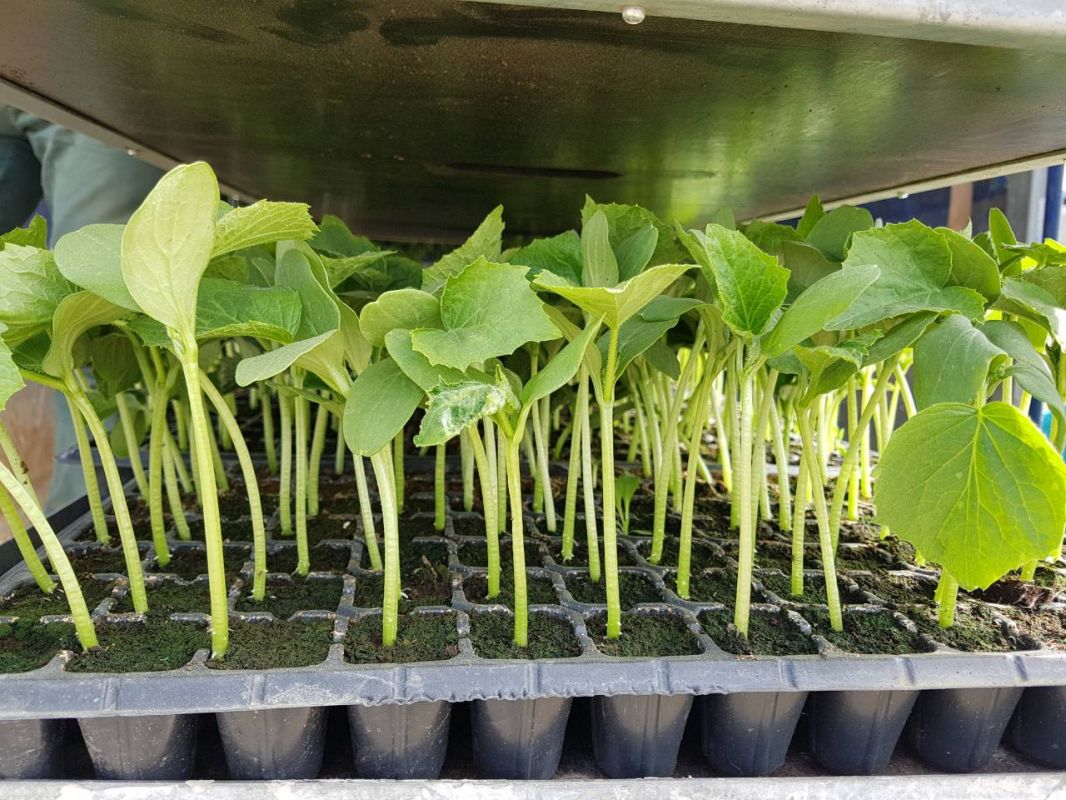Zehajdin Kelmendi, 55, has been a farmer all his life. He cultivates vegetables, wheat, watermelons, and corn. Over the years, he has slowly increased the cultivation surface of his family in west Kosovo, and the number of workers. However, life as a farmer has not been easy. For Kelmendi and other vegetable producers like him in Kosovo, the future is uncertain. Will he have a good yield? Will he have a secure market for the produce?
For Skënder Ramadani, a specialized seedling producer in central Kosovo, the future is likewise uncertain and risky. His business relies mostly in forecasting what types of varieties farmers will need, and in what quantities. This means that even a small miscalculation on his part or lack of buyers may have serious consequences for his business.
Fehim Rexhepi is the owner of Agro Celina, a collection center operating since 2009 in the heart of the vegetable production area of Kosovo – Rahovec. This center cooperates regularly with some of the largest fruit and vegetable processors and exporters in Kosovo, and has quickly grown in the last years. As a result, Agro Celina is faced with the constant pressure of ensuring regular and sustainable supply of raw material from farmers to processors.
How can the concerns of the farmer, seedling producer and collection center be addressed in one stroke? Enter “contract farming”. In short, contract farming is when a farmer grows vegetables for a buyer in accordance with an agreement made beforehand – The Contract.
In the case of Zehajdin, Skënder and Fehim, the contract farming model works like this: a vegetable processing company signs a contract with Agro Celina for specified quantities and quality class of specific hybrid varieties. Agro Celina establishes the network of farmers who are capable and willing to produce the specified crops. Agro Celina connects the specialized seedling producer with the farmers. The latter buy the seedlings from the former instead of cultivating themselves by using traditional methods. Agro Celina collects the produce and ships it to the processor.
“Contract farming is a strategic action that improves and brings important changes in the value chain,” says Skënder Ramadani.
“Using seedlings versus seeds is preferable and beneficial in more ways than one,” says Fehim Rexhepi. “By using properly grown seedlings, the farmers obtain the optimum quantity and quality of yield per surface unit, and we know exactly how much surface we should plant to meet the conditions of the contract. No resources go to waste. Thanks to the security provided by contract farming, both farmers and the collection center can plan and afford to utilize more land.”
Benefits of Contract Farming
Firstly, farmers gain access to specialized seedling producers who supply the seedlings and the techniques to ensure the quality of the produce. On the other hand, the specialized seedling producer takes an informed decision on what varieties of seedlings to produce, while securing the market.
Secondly, farmers gain access to larger local and foreign buyers through the collection center, which has signed contracts with those buyers. Thus, farmers secure the market for their entire produce. The collection center secures consistent and sustainable supply of vegetables to its buyers.
Thirdly, farmers become more self-dependent. “Through this contract farming activity, the specialized seedling producer also delivers to farmers training on how to look after the crops. This practical knowledge transferred to the farmers helps them ensure sustainable income,” says Skënder Ramadani.
“In our present context, this contract farming activity is innovation,” says Fehim Rexhepi. “The support of Swisscontact through the Promoting Private Sector Employment project was the catalyst for initiating the change. Signing a contract is not the change itself. The real change is that we have challenged the traditional mentality and we are shaping a new way for farmers. This will have far-reaching effects.”
The support to vegetable contract farming in Kosovo is one of the core activities of the Promoting Private Sector Employment (PPSE) project in Kosovo. This activity aims to support value chain players to improve production and aggregation capacities and flow through the newly-introduced concept of specialized seedling. This is estimated to increase the yield of crops in this season by 30% at least, while reducing production cost at all levels.
Why did Swisscontact get involved? During the first project phase 2014-2017 it became apparent that all value chain actors were struggling due to absence of contracts, lack of trust between each other and lack of overall awareness of the benefits of contracts farming. That’s why the PPSE project introduced several complementary activities involving all actors and succeeding with the current contract farming system.
Through this activity, farmers are observing in practice how planning is important for the future. It not only reduces cost but also it helps eliminate uncertainty and provide a better life for the families and the community.
The overall goal of the Promoting Private Sector Employment (PPSE) in Kosovo is to create jobs for young women and men in Kosovo through small and medium enterprises operating in well-organized and inclusive economic sectors. The project runs from 2017 – 2021. It is a Swiss Agency for Development and Cooperation project that is implemented by Swisscontact in partnership with Riinvest Institute.





